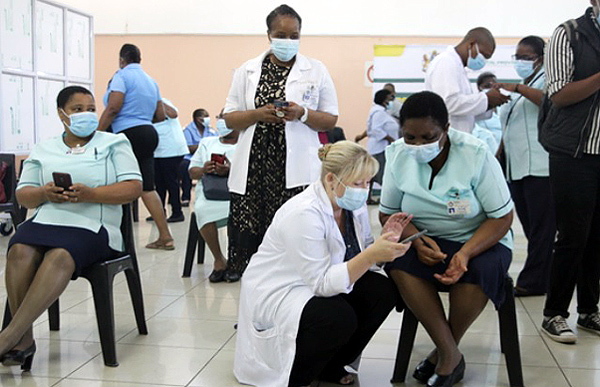
Good news for South Africa. Bad news for the rest of sub-Saharan Africa.
Kenya issued an emergency “Cessation of Movement” directive today, and South Africans are bracing for a surge that won’t peak until the end of April. So how does that mean “good news” for South Africa but not for Kenya?
This is not information or analysis on how safe or reliable travel may be to sub-Saharan Africa for visitors who are vaccinated. It’s a look at how the countries are viewing themselves.
Last week the Kenyan government warned that strict mitigation efforts were coming as cases surged and hospitalizations grew critical.
“Kenya is squarely in the grip of the third wave of this pandemic,” President Uhuru Kenyatta said in a press release. “The death rate is devastating by all measures; and the stress the pandemic is placing on our health system is unparalleled.”
As I’ve often reminded you, looking at just the raw numbers is very misleading for most of Africa. It’s the trends that truthfully reflect Kenyatta’s concerns, not raw numbers that are distorted by under-developed reporting systems.
Test positivity rates rose in Kenya to nearly 20% last week from 2.6% at the beginning of this year. Were it not so large an increase one might argue it’s another situation where public health methodologies are rapidly improving, but such would not explain a sudden 15-20 times increase.
The country has vaccinated just under 200,000 people, 0.4% of the population, with a mixture of Astra-Zenca and Russia’s Sputnik vaccines. Almost everyone vaccinated so far has had to pay for it.
The country will not begin mass vaccinations until it receives large amounts of vaccine through WHO’s COVEX consortium, which released a timetable that suggests a third of the Kenyan population won’t be vaccinated until June, 2023.
Recognizing the great struggle of the next few years, Kenyan officials are beginning to reverse their loose restrictions as regards tourism.
Yesterday the Mombasa coastal authorities began aggressive denial of entry to foreigners arriving at the airport or train station who could not prove either being vaccinated or having had a recent negative PCR test.
Today the Kenyan government warned any tourists still in the country to leave before midnight tomorrow or face mandatory quarantine. The local airline set up a special hotline for visitors in the bush needing assistance for getting out quickly:
“Airkenya Express [will] operate evacuation/charter flights for international tourists up to and including 02nd April 2021. International tourists [must] contact Airkenya by 1600hrs today, 01st April 2021.
“Customers holding tickets for the month of April 2021 will need to postpone their trips until further directive from the government.”
Kenya is the most transparent, most democratic and essentially most honest country in East Africa, so you can only surmise with horror how its neighbors, particularly Tanzania, are doing.
“The third wave [will] be sooner than predicted. Most [predicted] June or July. I foresee towards the middle of April,” Dr Devashnie Govender speaking from her Durban clinic said today.
The Health minister Dr Zweli Mkhize told South Africa’s Daily Maverick that the third wave could be even more damaging than the previous two waves. “Its impact will probably be more devastating.”
Nevertheless, the government has not yet reversed the relaxed restrictions of its current “Level 1″ lockdown, held throughout the month of March. That is the least restrictive lockdown the country has implemented.
Hours ago the government approved the use of the Johnson & Johnson vaccine, and together with other vaccines confirmed that more than 30 million doses were on the way. The population of South Africa is just under 60 million. (The vaccine rollout was abruptly disrupted earlier last month when the government rescinded use of the Astra-Zenca vaccine.)
In the last few days Mkhize reaffirmed the government’s promise to vaccinate all South Africans by the end of February, 2022. Vulnerable populations, the elderly and essential workers are expected to be vaccinated by the end of July.
So the situation in South Africa – unlike Kenya – seems very similar to the U.S.: a race between getting enough of the population vaccinated before the next predicted surge.
It’s all about money. Right now those that pay get the goods. South Africa can pay. Kenya can’t.